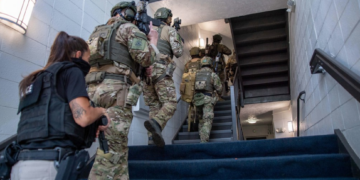Washington Prime Group Inc., the real estate investment trust that owns the Jefferson Valley Mall in Yorktown Heights, has filed for Chapter 11 bankruptcy protection.
WPG made its filing in U.S. Bankruptcy Court for the South District of Texas, Â in Houston. WPG, which was formed in 2014, is based in Columbus, Ohio.

Operations at the Jefferson Valley Mall are expected to be unaffected by the filing. The mall shows a roster of 61 stores, including high visibility brands such as Aeropostale, Dick”™s Sporting Goods and Verizon Wireless. Dick”™s and Macy”™s are named as the mall”™s anchor stores. WPG told the court that the Jefferson Valley Mall has 583,063 square feet of space and has an occupancy rate of 76.4%.
WPG”™s other New York state property is the Chautauqua Mall in Lakewood. It”™s a regional shopping center with 435,415 square feet of space.
WPG also owns the Plaza at Buckland Hills in Manchester, Connecticut. It is a 309,416-square-foot open-air town center with more than 30 stores.
In a document submitted to the court in Houston, WPG said its property portfolio consists of material interests in 102 shopping centers in the U.S., totaling approximately 52 million square feet of gross leasable area. It explained that the Covid-19 pandemic had a significant impact on its operations despite efforts to counteract its effects.
In a filing with the U.S. Securities and Exchange Commission, WPG said that on June 11 it entered into a restructuring support agreement with certain creditors. It also said that it filed court motions asking for authority to pay employee wages and benefits along with paying vendors and business partners for goods and services provided both before and after the bankruptcy filing and that it expects that they will be paid in full in the ordinary course of business.
“WPG temporarily reduced its workforce by approximately 20% through furloughs and layoffs, temporarily reduced senior management base compensation from 5% to 25% for certain executives, temporarily suspended the quarterly common share and operating partnership unit cash dividend for 2020, and drew $120 million under its revolving credit facility to support operations,” the company said in a court document.
“In addition, the company executed forbearance agreements on certain consolidated and unconsolidated property-level mortgage loans, resulting in enhanced cash flow during a period of decreased rent collections.”
WPG said that despite being able to reopen with capacity restrictions, “a resurgence in Covid-19 cases continued to negatively impact consumer habits and sentiment while also depressing foot traffic at WPG”™s properties throughout the end of last year and into the first quarter of 2021.”
WPG told the court that as of June 14, it had approximately $3.87 billion in debt, of which about $1.1 billion was unsecured.
“The shift of consumer behavior from shopping in brick-and-mortar retail stores to online channels has resulted in operational challenges for much of the retail industry. WPG, as a major landlord of national retailers, has not been spared from the economic pressures of this new reality,” WPG told the court.
















